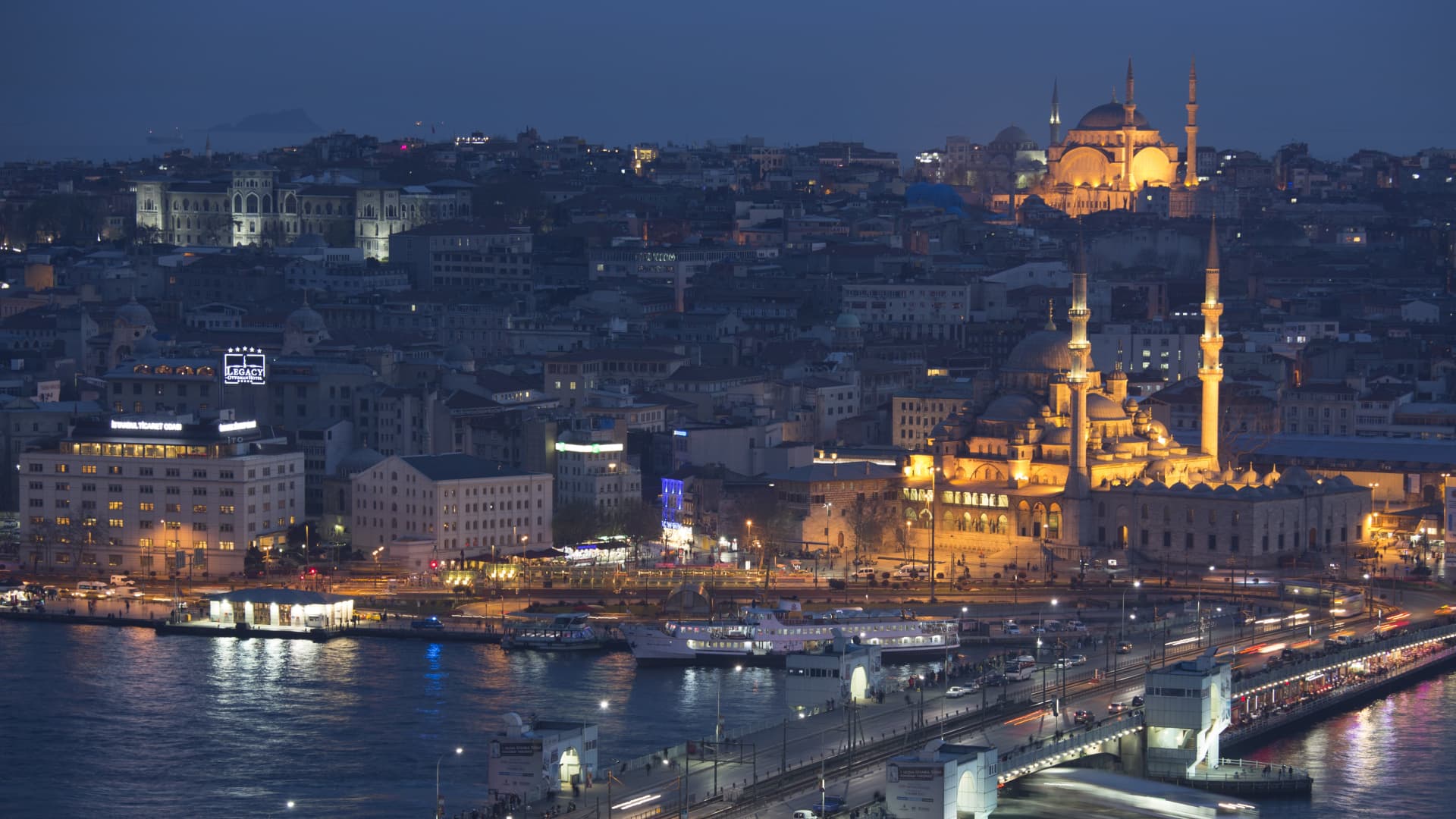Inflation in Turkey topped 75% in May, up from 69.8% in April, in what economists expect to be the peak before prices start to ease.
Consumer prices rose 75.45% in May on an annual basis and 3.37% on a monthly basis, according to the Turkish Statistical Institute, a government agency.
The sectors seeing the steepest annual price rises were education at 104.8%; housing at 93.2%; and hotels, cafes and restaurants at 92.9%.
Economists had previously forecast that inflation in the country of 85 million people would peak around 75%. Turkey has been on a yearlong journey of steadily hiking interest rates in an effort to cool prices, resulting in significant financial difficulties for the average Turkish consumer.
Turkey’s central bank has kept its interest rate at 50% since March, citing the continuing need to counter climbing inflation in the country. The bank said at the time that “tight monetary stance will be maintained until a significant and sustained decline in the underlying trend of monthly inflation is observed.”
The month-on-month CPI increase of 3.4% in May was higher than in both March and April, leading some analysts to expect a less straightforward trajectory in terms of prices easing.
“We’re confident that inflation has now reached a peak but, with today’s release containing a few unpleasant surprises, the pace of disinflation in the second half of the year is looking a bit more uncertain,” Liam Peach, senior emerging markets economist at London-based Capital Economics, wrote in a research note.
The firm previously expected inflation to ease to 41% by year-end, while the Turkish central bank forecasts it will reach 38% by then.
Based on the current pace of inflation acceleration, it “may now end the year slightly higher,” Peach wrote, adding that “an extended pause in interest rates is likely for some time.”
The jury among economists remains mixed as to whether Turkey’s central bank will cut interest rates by the end of this year or wait until 2025.





